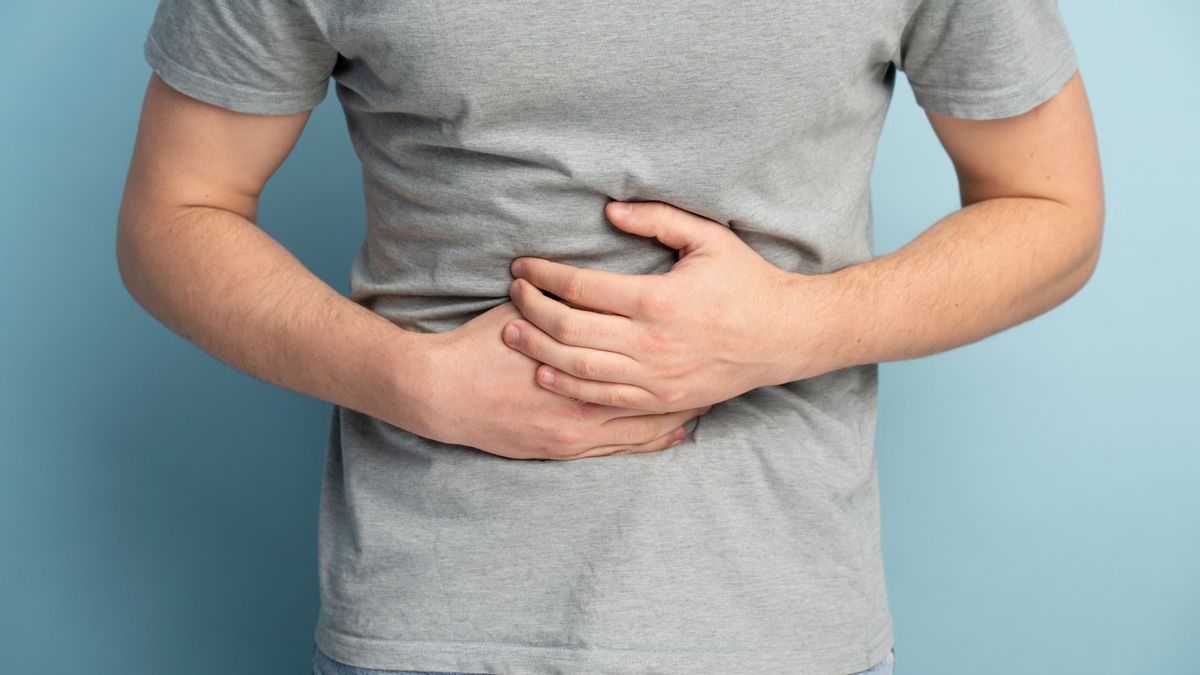YOGYAKARTA - Many people have experienced bloating stomachs due to gas buildup in the stomach. This condition makes the stomach feel uncomfortable and disrupts daily activities. So what causes excess gas in the stomach?
Gas in the stomach is usually emitted through rectum or drain in the form of farts. Normally, humans will defecate to emit gas 13-21 times a day. But sometimes the gas can accumulate in the stomach to cause bloating.
When there is a lot of gas stored in the stomach, a person will often fart and fart. Often this condition also feels as congested as when eating in large portions. Not a few also experience stomach pain. There are several causes of excess gas in the stomach that you need to know.
The buildup of gas in the stomach can be caused by several factors. Excessive gas production can occur due to food intake to digestive health problems. The large amount of gas stored in the stomach and intestines then makes the stomach bloating.
There are several types of food that can result in excessive gas production, such as vegetables, high fiber foods, soft drinks or carbonated beverages, to foods that contain sorbitol and fructosa.
Some types of vegetables can cause excessive gas production, including cabbage, broccoli, peat. Excess gas production can also be caused by the habit of consuming soft drinks such as Sprite, Fanta, Coca Cola, and other products that are easy to find in supermarkets.
Some of these foods cause excessive gas because food is not broken down until it reaches the large intestine and is digested by bacteria. When food is digested by bacteria in the large intestine, it will produce a foul odor because the fermented food has not been absorbed by the small intestine. This condition then causes the onset of gases such as methane and hydrogen sulfide which makes the gas in the body taste unpleasant.
Apart from food, the accumulation of gas in the stomach can also be caused by the habit of swallowing air that can occur when eating and drinking. For example, when chewing on rubber candy, people usually swallow more air. The presence of bacteria and fungi is also another cause of excess gas in the stomach.
VOIR éGALEMENT:
If you have a bloating stomach complaint due to gas buildup in digestion, there are several ways to avoid this problem. Here are a number of tips that you can apply so that your stomach does not experience excess gas production.
One of the things that you must pay attention to to to maintaining digestive health is by paying attention to your diet. If you don't want to experience gas buildup in your stomach, you should avoid some types of food such as cabbage, nuts, broccoli, and onions. You also need to reduce the consumption of fruits such as utensils and apples that tend to cause gas in digestion. Foods that contain artificial sweeteners also need to be avoided because they can cause more gas production in the intestines.
In addition, you also need to stop the habit of consuming soft drinks so as not to experience gas buildup in the stomach. Dairy products can also produce excessive gases because it is difficult to break down in the intestines.
Many do not realize that the onset of excessive gas in the stomach can also be caused by how to chew food. When you eat too fast or chew too often, it can cause air to enter and cause gas buildup in the stomach. So it's best to slowly reduce the amount of gas you swallow.
Another way to avoid and overcome the buildup of excessive gas in the stomach is to eat herbal ingredients. The content in herbal ingredients can help overcome the problem of bloating stomach. For example, a tax seed that plays a role in breaking the gas stored in the stomach and peppermint tea to reduce the bloating stomach.
Such is the review of the causes of excess gas in the stomach and how to avoid or overcome it. Stomach bloating is actually not a life-threatening medical problem, but it still needs to be considered if there is an excessive gas buildup that causes prolonged stomach pain.
Stay up to date with the latest domestic and other overseas news on VOI. You present the latest and most updated nationally and internationally.
The English, Chinese, Japanese, Arabic, and French versions are automatically generated by the AI. So there may still be inaccuracies in translating, please always see Indonesian as our main language. (system supported by DigitalSiber.id)












